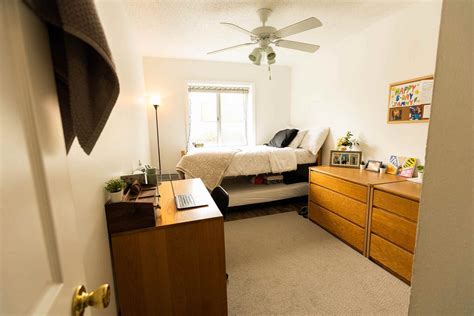As a graduate student at the University of Pennsylvania, finding suitable housing can be a daunting task. With a diverse range of options available, it’s essential to understand the key factors to consider when choosing the right accommodation for your needs. This comprehensive guide will provide an in-depth exploration of Penn’s graduate student housing options, including university-owned apartments, off-campus apartments, and private rental houses.

University-Owned Apartments: Comfort and Convenience
Penn offers various on-campus apartments specifically designed for graduate students. These apartments provide convenient access to academic buildings, libraries, and other campus facilities, eliminating the hassle of commuting.
Key Benefits:
- Proximity to campus: Live within walking distance of classes and campus resources.
- Furnished units: Most apartments come fully furnished, saving you the cost and effort of buying furniture.
- Utilities included: Rent typically includes utilities such as electricity, heat, and trash removal.
- Community atmosphere: Meet and connect with fellow graduate students in shared common areas.
Apartment Options:
- Graduate Towers: Located in the heart of campus, these high-rise apartments offer panoramic city views and modern amenities.
- Graduate Gardens: Situated near the Schuylkill River, these apartments provide a quiet and scenic setting with private balconies.
- Walnut West: Located in the University City neighborhood, this complex offers a variety of apartment sizes and layouts.
Off-Campus Apartments: Flexibility and Affordability
For students seeking more independence and affordability, off-campus apartments are a viable option. The availability of units varies by neighborhood, and prices can fluctuate depending on location, size, and amenities.
Advantages:
- Lower rent: Off-campus apartments generally have lower rent than university-owned units.
- More space: Off-campus apartments often offer more living space than university apartments.
- No university restrictions: Students can enjoy more freedom and flexibility without university regulations.
- Neighborhood immersion: Experience the vibrant neighborhoods surrounding campus, each with its unique character.
Considerations:
- Commuting: Factor in the cost and time of transportation to and from campus.
- Furniture: Off-campus apartments are typically unfurnished, requiring additional expenses for furniture and appliances.
- Utilities: Rent may not include utilities, which can add to the monthly cost.
- Safety: Research the safety of different neighborhoods before choosing an apartment.
Private Rental Houses: Privacy and Luxury
For students seeking privacy and a luxurious living experience, private rental houses are an excellent choice. These houses provide ample space, often with multiple bedrooms, private bathrooms, and outdoor areas.
Benefits:
- Private living: Enjoy the privacy of your own home without sharing common spaces.
- Spacious living: Private houses offer more space than apartments, providing ample room for studying, socializing, and storage.
- Customization: Tenants can personalize the house to their liking, including furniture, artwork, and décor.
- Outdoor space: Many private houses have yards or patios, providing a relaxing retreat from academic life.
Challenges:
- High rent: Private rental houses are typically more expensive than apartments.
- Maintenance: Tenants are responsible for all maintenance and repairs, which can be time-consuming and costly.
- Neighborhood location: Private houses may be located farther from campus, requiring longer commutes.
- Insurance: Tenants may need to purchase renter’s insurance to protect their belongings.
Conclusion: Choosing the Right Option
The best graduate student housing option at Penn depends on individual preferences and priorities. University-owned apartments offer convenience and community, while off-campus apartments provide flexibility and affordability. Private rental houses offer privacy and luxury but at a higher cost. By carefully considering the key factors discussed in this guide, students can make an informed decision that meets their specific needs and budget.
- Not considering location: Choose an apartment or house that is close to campus or has convenient transportation options.
- Renting sight unseen: If possible, visit the property in person before signing a lease.
- Ignoring safety: Research the safety of the neighborhood and ask about security measures in the building.
- Not reading the lease carefully: Make sure you understand all the terms and conditions of the lease before signing.
- Overestimating your budget: Factor in not only rent but also utilities, furniture, and transportation costs.
Table 1: Penn Graduate Towers Apartment Costs
| Apartment Type | Rent |
|---|---|
| Studio | $1,600 – $1,800 |
| One-Bedroom | $1,800 – $2,000 |
| Two-Bedroom | $2,000 – $2,200 |
Table 2: Off-Campus Apartment Rental Costs in University City
| Neighborhood | Rent (Approximate) |
|---|---|
| Spruce Hill | $1,500 – $1,800 (per bedroom) |
| Cedar Park | $1,400 – $1,600 (per bedroom) |
| University City | $1,600 – $2,000 (per bedroom) |
Table 3: Private Rental House Costs in University City
| House Size | Rent (Approximate) |
|---|---|
| Two-Bedroom | $2,500 – $3,000 |
| Three-Bedroom | $3,000 – $4,000 |
| Four-Bedroom | $4,000 – $5,000 |
Table 4: Utilities Costs for Off-Campus Apartments in University City
| Utility | Cost (Estimated) |
|---|---|
| Electricity | $50 – $100 per month |
| Gas | $20 – $50 per month |
| Water | $30 – $60 per month |
| Internet | $50 – $100 per month |
